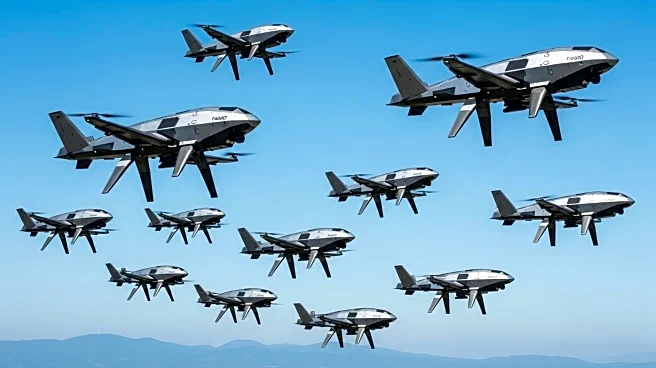What's Happening?
China is set to display its military prowess during a grand parade in Beijing, marking the 80th anniversary of Japan's World War II surrender. The event will feature autonomous drones and other advanced military technologies, highlighting China's growing capabilities. The parade, attended by Russian President Vladimir Putin and North Korean leader Kim Jong Un, underscores China's strategic alliances and its position as a formidable military force. The display comes amid regional tensions, particularly concerning Taiwan, and aims to demonstrate China's readiness to rival the U.S. military.
Why It's Important?
The parade signifies China's ambition to establish itself as a global military power, potentially altering the balance of power in the Asia-Pacific region. The inclusion of autonomous drones reflects the evolving nature of warfare, where technology plays a crucial role. This development could impact U.S. military strategy and its alliances in the region, as China seeks to assert its influence. The event also serves as a domestic propaganda tool, reinforcing national pride and the government's legitimacy amid economic challenges.
What's Next?
China's military modernization efforts are expected to continue, with goals set for 2035 and 2049 to achieve world-class status. The U.S. and its allies may need to reassess their defense strategies in response to China's growing capabilities. Diplomatic tensions could rise, particularly with Japan and other regional players, as China asserts its territorial claims. The international community will closely monitor China's military advancements and their implications for global security.
Beyond the Headlines
The parade highlights the ethical and strategic challenges posed by autonomous military technologies. The use of drones raises questions about accountability and the potential for escalation in conflicts. China's military expansion also reflects broader geopolitical shifts, with implications for international norms and power dynamics. The event underscores the importance of dialogue and cooperation to address security concerns and prevent conflict.









